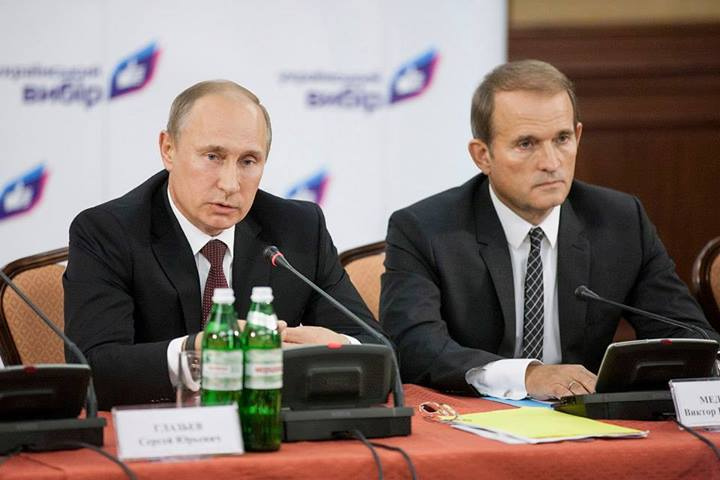The US wanted to block EU-Russian integration and control the former Eastern Bloc, Viktor Medvedchuk insists
The West’s insistence that it won the Cold War and was entitled to the spoils of victory – at the expense of Russian interests – is at the root of the ongoing crisis in Ukraine, Kiev’s exiled opposition leader has warned.
Viktor Medvedchuk was forced to leave his home nation, after his arrest on treason charges. He claims they are politically motivated, and part of President Vladimir Zelensky’s crackdown on the country’s opposition.
His Opposition Bloc – For Life party was the second largest group in the Ukrainian parliament and advocated reconciliation with Moscow. It is now a rump faction, closely controlled by Zelensky allies.
In an article published by Russian newspaper Izvestia on Monday, Medvedchuk analyzed the causes of the current crisis, arguing that the origin of the conflict lies in the matter in which the end of the Cold War is perceived by Washington and Moscow.
“The West definitely considers itself as the winner and Russia as a defeated party,” he said. Consequently, it considers ex-Soviet territories as “legitimate prey for the US and NATO.”
From Moscow’s standpoint, it wanted to end confrontation when it abandoned communism, he asserts. Since the 1990s, it had sought friendly relations with Western nations, as well as economic and political integration with the EU, Medvedchuk wrote.
American goals, as evidenced by the expansion of NATO in Europe over Moscow’s objections, were at odds with opening the door to its Cold War opponent. Ultimately, Washington derailed EU-Russian engagement, he insists.
Conflicts like the Balkan wars are further evidence that the West had moved to gobble up the former Eastern Bloc, he continues, since they helped to “make it easier for the winner to take it over.”
The West targeted Ukraine for absorption and saw the country as part of its rightful prize, but a lot of resistance had to be overcome in order to split it from Russia, considering Kiev’s historical ties with Moscow, and its economic interest in maintaining good relations, Medvedchuk argues.
Kiev antagonized the eastern part of the country, which was both economically stronger and more pro-Russian than the nationalist lands in the east, he suggested. And even then, both Zelensky and his predecessor, Pyotr Poroshenko, had been elected on a peace platform only to become “war party” politicians after taking office.
The current conflict can be resolved only if pro-peace politicians are allowed to make their case, and Western nations must recognize that Russia has legitimate interests in Ukraine. Otherwise, it will “grow further, spilling over to Europe and other countries,” and has the potential to escalate into a nuclear war, he warned.






